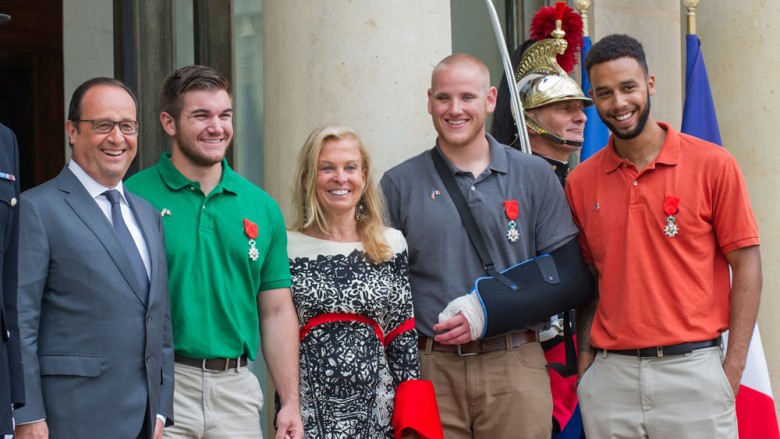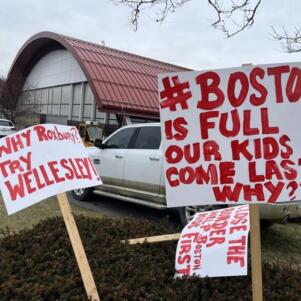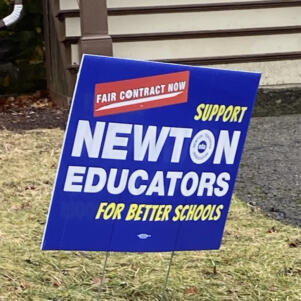American heroes in Europe
By NBP Editorial Board | August 27, 2015, 7:44 EDT
 From left, French President Francois Hollande, U.S. National Guardsman from Roseburg, Ore., Alek Skarlatos, U.S. Ambassador to France Jane D. Hartley, U.S. Airman Spencer Stone and Anthony Sadler, a senior at Sacramento State University in California, pose for photographers as they leave the Elysee Palace in Paris, France, after Hollande awarded the three men with the French Legion of Honor on Monday, Aug. 24, 2015. (AP Photo/Kamil Zihnioglu)
From left, French President Francois Hollande, U.S. National Guardsman from Roseburg, Ore., Alek Skarlatos, U.S. Ambassador to France Jane D. Hartley, U.S. Airman Spencer Stone and Anthony Sadler, a senior at Sacramento State University in California, pose for photographers as they leave the Elysee Palace in Paris, France, after Hollande awarded the three men with the French Legion of Honor on Monday, Aug. 24, 2015. (AP Photo/Kamil Zihnioglu) It has been said that we live in a hero-less era: a world where young people are entitled, and selfish, and unwilling to sacrifice for others; a world where even yesterday’s heroes (Columbus, Washington, Lincoln, Martin Luther King) are criticized for their personal failings or, worse yet, for not comporting with modern notions of morality or “tolerance.”
And, yet, just when some lament the absence of true heroes altogether, along come four Americans — Anthony Sadler, Spencer Stone, Alek Skarlatos, and Mark Moogalian — to remind us that heroism and courage are alive and well.
The story is now well-known but bears re-telling. Sadler, Stone and Skarlatos have been friends since they attended a Christian middle school in California. Moogalian is a 51 year-old American from Virginia, who teaches English at the University of Paris.
Last Friday, Ayoub El-Khazzani, a 26-year-old Moroccan man on European watch-lists for suspected ties to jihadist groups, boarded a high-speed train from Amsterdam to Paris. Professor Moogalian became suspicious of El-Khazzani, who entered the toilets with a suitcase and spent an inordinate amount there. When El-Khazzani emerged, he was bare-chested and carrying a gun.
At that point, Moogalian rushed him, coming to the aid of a French banker, who was being confronted by El-Khazzani carrying an arsenal of weapons that included an AK-47, several magazines, a loaded pistol, and a box cutter. Acting instinctively to protect his wife, Moogalian managed to get the AK-47 away from El-Khazzani but was shot by him in the neck with a handgun.
The shot woke Stone from his train-induced slumber. Skarlatos tapped Stone on the shoulder and said, “Let’s go.” Stone, Skarlatos and Sadler jumped up and attacked the assailant, ultimately choking him unconscious and tying his hands behind his back.
At this point, Moogalian, who was wounded in the neck and back, was hemorrhaging badly and could have died without help. Stone, a 23 year-old Airman and a trained medical technician, who was himself wounded, stopped the bleeding and cared for Moogalian for the rest of the trip. Moogalian’s wife credits Stone with saving her husband’s life.
These four Americans and a Brit who joined in subduing El-Khazzani thwarted what could have been a bloody terrorist attack that killed many dozens of passengers. They are truly heroes.
These men are not the kind of heroes that are often recognized in today’s media — people who survive terrible accidents, who are victims of tragedy, or who announce to the world some private (and no doubt painful), but politically correct, secret.
These men made a choice to risk their lives to save others. They did it instinctively. They went into harm’s way and showed uncommon bravery. Many have compared them to the late Todd Beamer, who on Sept. 11, 2001, with other passengers on United Flight 93, sacrificed his life to take down the terrorists.
Over the weekend, France’s president Francois Hollande thanked the Americans personally, awarding them the Legion d’honneur medal. And the Air Force is awarding Stone its highest noncombat honor, the Airman Medal.
This inspiring story of courage in the face of great danger reminds us that the American spirit of will, courage, and sacrifice is not dead. These Americans on a European train did not passively allow slaughter and carnage but acted to save the lives of others. May they serve as an example for us all.
Other NewBostonPost editorials:
On ‘sanctuary cities,’ local governments should not flout federal law
Fatherlessness: The root cause of income inequality
Obama + Kerry = Neville Chamberlain











